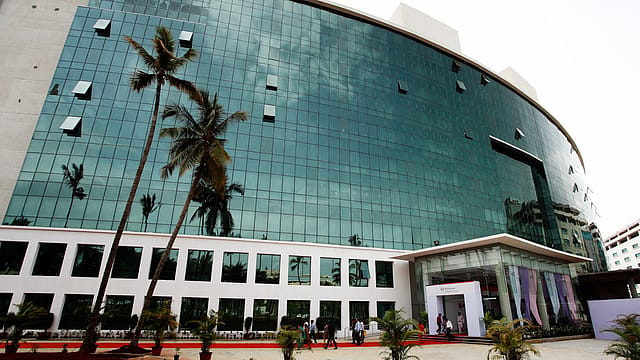When you are in the public market you can’t be an owner in perpetuity
ADVERTISEMENT

The hostile takeover of Mindtree by L&T is a watershed moment in the Indian IT services industry. This is the first time a hostile takeover is attempted in the industry which looked highly improbable in the past. Even the fact that the Mindtree is well run with good governance practices does not deter L&T to seek change in management control. Good performance by management was always seen as a defence against any change in control in the past.
The IT services companies redefined the Indian capital markets. The founders came from middle-class background, uncompromising in their principles, demonstrated a high degree of value system and created enormous amounts of wealth for all stakeholders. They demonstrated that you can create world class companies from India. The Industry created poster boys like Narayana Murthy whom every youngster in India adores and wants to emulate. They created wealth legally and ethically and democratised wealth through liberal ESOP programs which ultimately diluted their holdings in companies. But the high growth, high PE companies they built acted as a deterrent against any hostile takeover.
Narayana Murthy once famously said, “Our assets walk out of the door each evening. We have to make sure that they come back the next morning”. Infosys also pioneered the concept of “HR valuation” to educate investors where the real value of the company lies. The unique culture the industry built keeping employees at the core created a unique work culture unseen in other industries. It was always clear that in a people driven business hostile takeover does not make sense.
January 2026
Netflix, which has been in India for a decade, has successfully struck a balance between high-class premium content and pricing that attracts a range of customers. Find out how the U.S. streaming giant evolved in India, plus an exclusive interview with CEO Ted Sarandos. Also read about the Best Investments for 2026, and how rising growth and easing inflation will come in handy for finance minister Nirmala Sitharaman as she prepares Budget 2026.
However, things have changed in the last few years. The IT stocks have transformed themselves from being a growth stock to a value stock. As the growth rates came down to high single digits coupled with pressure on margins, companies started focusing on financial leverage like high dividends and buybacks to improve returns to shareholders. Irrespective of the public posturing there is little differentiation in services and solutions between companies today. The IT services industry of today is a highly commoditised business and consolidation is inevitable. The only moat for companies in such circumstances is greater size.
The acquisition of Mindtree will enable L&T to become a meaningful player in the IT services industry. It will help them to get the benefit of scale in operations while accelerating growth from complementing customer base. Despite their public posturing, the founders of Mindtree will ultimately agree to the merger. Once the large shareholder holding 20% of the company sold his stake to L&T there is little Mindtree can do. The management of Mindtree is too late to react and have very few options to defend.
The three major stakeholders in this transaction are customers, employees and investors. For the transaction to be successful the customers of Mindtree need to be comfortable that there wont be any disruption in services due to this transaction. L&T have reasonably sized software service business and do work with lots of global customers. They have deep leadership and understand the business. So, the concerns from the customer side can be addressed.
Employees look for continuity and no drastic change in culture. Peter Drucker once famously said culture eats strategy for breakfast”. Mindtree management keeps insisting on defending their unique work culture as defence. If L&T is not able to retain the key employees due to drastic change in culture the transaction will be a failure. I believe the L&T management understands that risk and hence keen on running the Mindtree business as a separate entity with full independence. Full integration from day one could upset the applecart. Over a period of time, the L&T management has to win the hearts of Mindtree employees and then do a full merger. As far as investors are concerned, they look for continuity and potential for increased value in the medium to longterm. Since L&T and LTI are listed entities with solid investor base this could be a non-issue.
The final frontier is the founders of Mindtree. Credit is due to the founders for building a very high quality company with best of governance standards. But, when you are in the public market you can’t be an owner in perpetuity. The sooner they understand the reality, it is better. They have to quickly decide the best course of action under the circumstance, keeping in mind the best interests of all stakeholders. Emotions have little role in running businesses.
The role of independent directors on the Board of Mindtree is important as founders seems conflicted in this transaction. They need to take a view on both the fairness of transaction and the value and clearly communicate to the shareholders. They need to take a dispassionate view on the transaction.
Any large transaction between two reasonably large players could create some disruption in the short term. But, with a phased integration it is possible to reduce the impact to a larger extent. I do hope that this transaction is consummated quickly as any prolonged uncertainty is not good for both the players.
Shareholder activism and hostile takeovers are part of a vibrant public market which would ultimately bring in more efficiency and rewards to shareholders. This transaction is a test case to test the vibrancy of Indian capital market.
[The author is chairman, Exfinity Venture Partners and former chief financial officer and board member of Infosys.]
